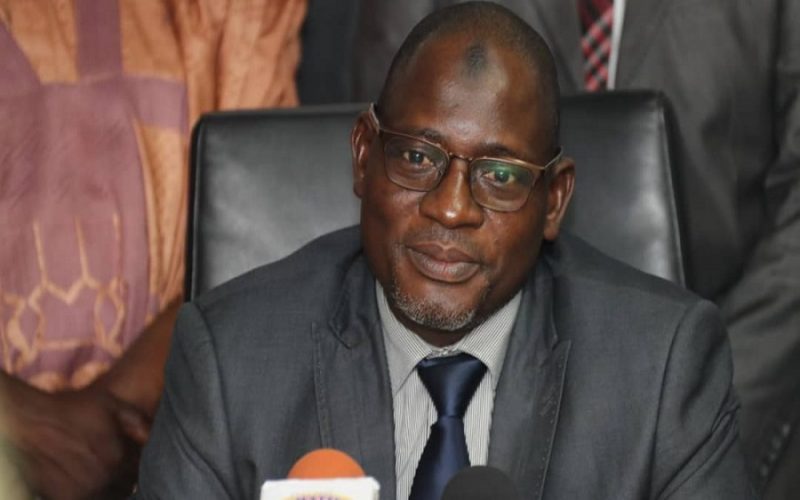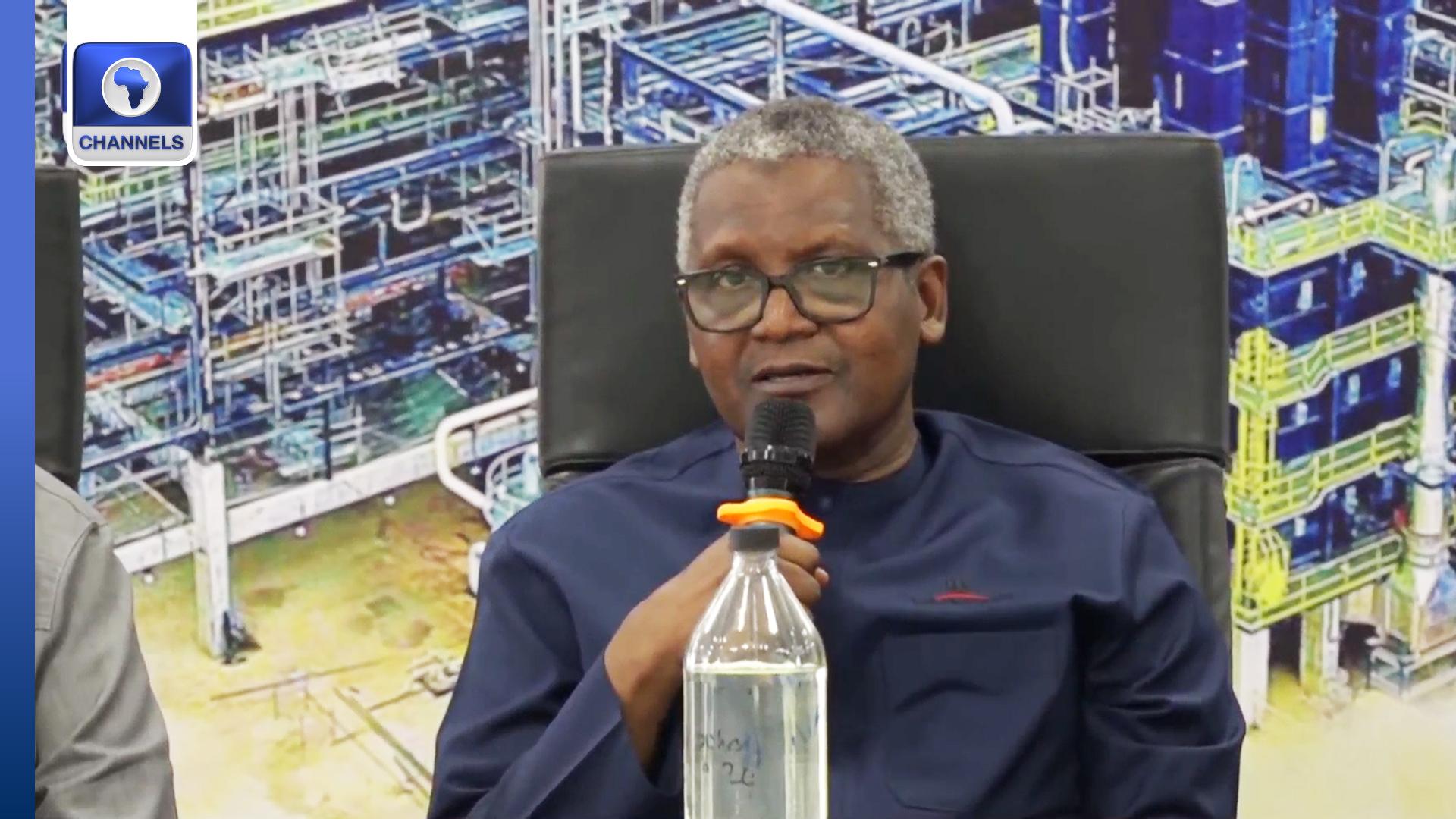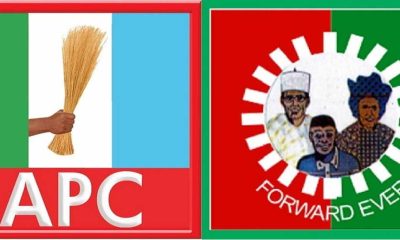Business
FIRS seeks African countries collaboration to tax digital businesses

The Federal Inland Revenue Service has called for improved collaboration among countries with the aim of exploring alternative rules that will enable market jurisdictions, particularly African countries, to effectively tax digital businesses.
This was stated during a presentation by the Executive Chairman of the FIRS, Muhammad Nami, at a Technical Assistance Programme organised by African Tax Administrators’ Forum’s (ATAF) with the theme “Member’s Needs and How To Broaden the Collaboration,” held in Lomé, Togo.
Nami noted that although some African countries had endorsed the Organisation for Economic Co-operation and Development (OECD) Inclusive Framework’s global solution on the tax challenges of the digitalised economy, Nigeria continues to maintain its position that the outcome would not be favourable to African countries.
He said, “Nigeria continues to hold the view that the outcome will produce very minimal revenue comfort for African counties. This is instructive considering the implementation challenges that developing jurisdictions will face due to the complexity of the Pilar 1 and 2 rules.”
The OECD’s new tax deal set out in 2021 has two pillars. The first pillar says that if a company has a global turnover of more than 20 billion euros and a profit margin of more than 10 percent, then 20-30 percent of the profit in excess of 10 per cent of revenue will be allocated to market jurisdictions using a revenue-based allocation key.
The second pillar sets a global minimum tax rate of (at least) 15%.
“Our analysis continues to show that the possible cost of administering and implementing the complex rules will far outweigh the expected revenue accruing from its implementation,” Mr Nami said.
“I therefore urge the African Tax Administrators Forum to join the discussion at the UN Tax Committee of Experts, South Centre, as well as collaborate with all other well-meaning stakeholders to explore alternative rules that will enable African countries to effectively subject the digital businesses and base eroding payments to tax in our jurisdictions.
“These collaborations should extend to other rules developed and implemented at the international level for the taxation of Multinational Enterprises, such as the tax treaty, exchange of information and transfer pricing rules.” Mr Nami stated.
He further called for the African Tax Administrators Forum to collaborate with the United Nations Development Programme (UNDP) to explore opportunities for Africa within the programme’s Tax for Sustainable Development Goals Initiative, to ensure that African countries are able to generate appreciable revenue to fund the Sustainable Development Goals.
While discussing the needs of the West African region that require Technical Assistance of ATAF, the chairman of FIRS noted that there was need for capacity building of members in respect of Base Erosion and Profit Shifting Actions by Multinational Corporations, as well as on the taxation of the digital economy.
“It is crucial for the ATAF Technical Assistance to look towards improving the capacity of member country’s tax administration, through the digitisation of operations. Also, critically needed by tax authorities in the West African region is the development of Data Analytics intelligence expertise and the use of research tools that are required for taxation in a modern economy,” he highlighted.
Nami further urged the African Tax Administrators Forum to organise peer-to-peer knowledge sharing sessions between beneficiaries of the Technical Assistance programmes, while also intensifying on its technical assistance on international tax rules, particularly in the areas of tax treaties, transfer pricing, and exchange of information.
The African Tax Administrators Forum Technical Assistance (ATAF-TA) Programme aims at helping members build sustainable and efficient tax systems while achieving its strategic plans to increase domestic resource mobilisation, target the development of African expertise and support Africa’s effective voice in the international tax environment.
Business
I’m honoured, excited over World Bank’s appointment – Dangote

I’m honoured, excited over World Bank’s appointment – Dangote
President and CEO of Dangote Group, Aliko Dangote, has expressed gratitude following his appointment to the World Bank’s Private Sector Investment Lab, a global initiative aimed at accelerating private investment and job creation in emerging economies.
In a statement confirming the development, Dangote described the appointment as both an honour and a reflection of his long-standing commitment to economic development through private enterprise.
“I am both honoured and excited to accept my appointment to the World Bank’s Private Sector Investment Lab, dedicated to advancing investment and employment in emerging economies,” Dangote said.
“This opportunity aligns with my long-standing commitment to sustainable development and unlocking the potential of developing economies.”
He referenced the successes of the so-called Asian Tigers, economies that experienced rapid growth through strategic investment, as a source of inspiration for advancing similar outcomes in other parts of the world.
The World Bank announced Dangote’s inclusion on Wednesday as part of a broader expansion of the Lab, which enters a new phase focused on scaling up solutions that attract private capital and generate employment in developing countries.
Other newly appointed members include Bill Anderson, CEO of Bayer AG; Sunil Bharti Mittal, Chairman of Bharti Enterprises; and Mark Hoplamazian, President and CEO of Hyatt Hotels Corporation.
READ ALSO:
- Akpabio to represent Tinubu at Pope Francis funeral
- PDP will come out stronger, Saraki reacts to Okowa, Delta gov defection
- Countries eligible to enter US without visas for 90days (full list)
World Bank Group President Ajay Banga noted that the expanded membership underscores the institution’s focus on integrating private-sector leadership into its strategy for global job creation.
“With the expanded membership, we are mainstreaming this work across our operations and tying it directly to the jobs agenda that is driving our strategy,” Banga said.
“This isn’t about altruism—it’s about helping the private sector see a path to investments that will deliver returns, and lift people and economies alike. It’s central to our mandate.”
The lab, which was co-chaired in 2023 by Canadian Prime Minister Mark Carney, previously sought to mobilise £1 trillion in sustainable investment, particularly targeting energy transition projects in emerging markets.
Aviation
Air Peace suspends flights nationwide over NiMet strike

Air Peace suspends flights nationwide over NiMet strike
Air Peace has suspended all its flight operations across the country due to the ongoing strike by the Nigerian Meteorological Agency (NiMet).
The airline said in a statement on Wednesday that it was also suspending operations due to the unavailability of QNH (hazardous weather) reports required for safe landings.
“Due to the ongoing NiMet strike and the unavailability of QNH (hazardous weather) reports required for safe landings, Air Peace has suspended all flight operations nationwide until the strike is over,” Air Peace said.
“Your safety is our top priority. We appreciate your understanding and will share updates as the situation unfolds.”
The airline had earlier announced that the NiMet strike could lead to flight delays and cancellations across its network.
Air Peace added that it was monitoring the situation and working with relevant stakeholders to minimise the impact on customers’ travel plans.
Employees of NiMet commenced a nationwide indefinite strike over welfare issues on Wednesday.
Some of the issues raised involve “NiMet’s refusal to negotiate or implement agreed financial allowances and unresolved entitlements,” including wage awards, peculiar allowances, and outstanding payments from the 2019 minimum wage.
They also accused the management of the agency of withholding important documents, ignoring requests for inclusion of omitted staff in past payments, and neglecting key training programmes in favour of executive retreats.
Business
Nigeria’s gas production increases by 15.6% to 227,931.65 mscf

Nigeria’s gas production increases by 15.6% to 227,931.65 mscf
Nigeria’s gas output has increased 15,6 percent month-on-month, MoM, to 227,931.65 million standard cubic feet, mscf, in March 2025.
But on year-on-year, YoY basis, the nation’s gas output recorded a marginal increase to 227,931.65 mscf in March 2025, from 198,353.62 mscf, recorded in the corresponding period of 2024.
Data obtained from the Nigerian Upstream Petroleum Regulatory Commission, NUPRC, Gas Production Status reports indicated that of the total of 227,931.65 mscf produced in March 2025, 119,552.75 mscf was associated while 108,378.90 mscf was non-associated gas.
Associated gas is extracted in the process of producing crude oil while non-associated gas is produced without crude oil after much investment, exploration and development.
The Ministry of Petroleum Resources (Gas), which is directly involved in the development of policies, targeted at increasing investment in the sector said efforts have been made to increase investment and production of gas in Nigeria.
Similarly, in its recent report obtained by Vanguard, the Nigerian LNG Limited stated: “We are fully committed to expanding our operations with the NLNG Train 7 Project, which will boost our production capacity by 35%, increasing from 22 Million Tonnes Per Annum (mtpa) to 30 mtpa. This project underscores our role as a key player in the global LNG market and positions Nigeria as a top-tier supplier of LNG, leveraging its vast proven gas reserves of 202 trillion cubic feet (the 9th largest globally).
Vanguard
-

 metro1 day ago
metro1 day agoOmokri : How Tinubu’s political mastery started with Abiola, says El-Rufai, Obi’s forces can’t stop him
-

 Education1 day ago
Education1 day agoJAMB officials seize candidates’ hijab at Caleb varsity, Muslim students kick
-

 Entertainment2 days ago
Entertainment2 days agoP-Square: Jude Okoye freed after two months detention
-

 International1 day ago
International1 day agoUS releases 41 countries granted 90-day entry without visas (full list)
-

 Politics2 days ago
Politics2 days agoLabour Party collapses into APC in Plateau
-

 metro1 day ago
metro1 day agoGroom cancels wedding, marries another lady same date, venue
-

 metro2 days ago
metro2 days agoNiger Gov Bago makes U-turn on dreadlocks ban after backlash
-

 metro9 hours ago
metro9 hours agoEFCC declares four persons wanted over CBEX scam





